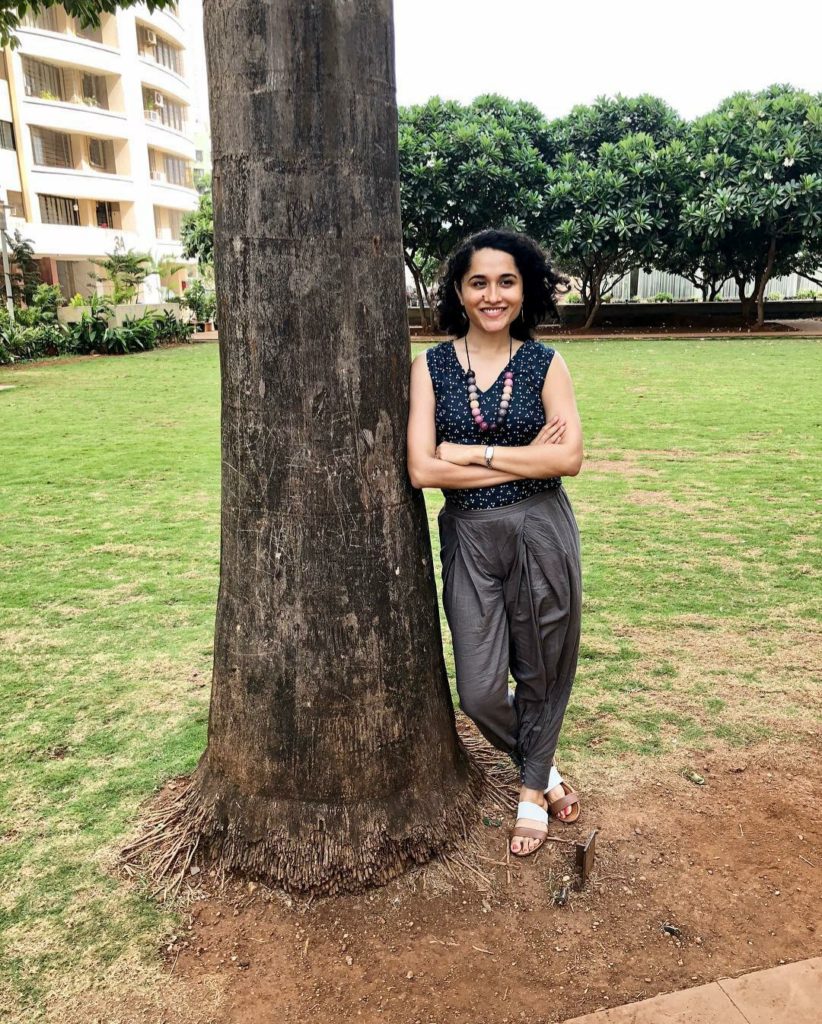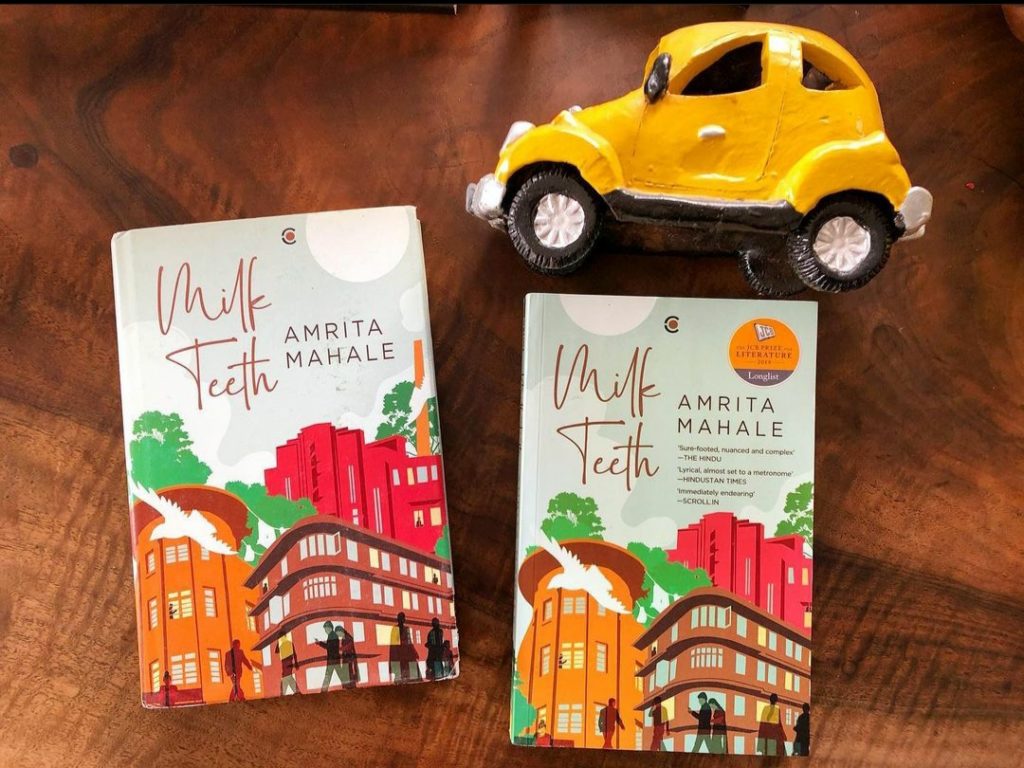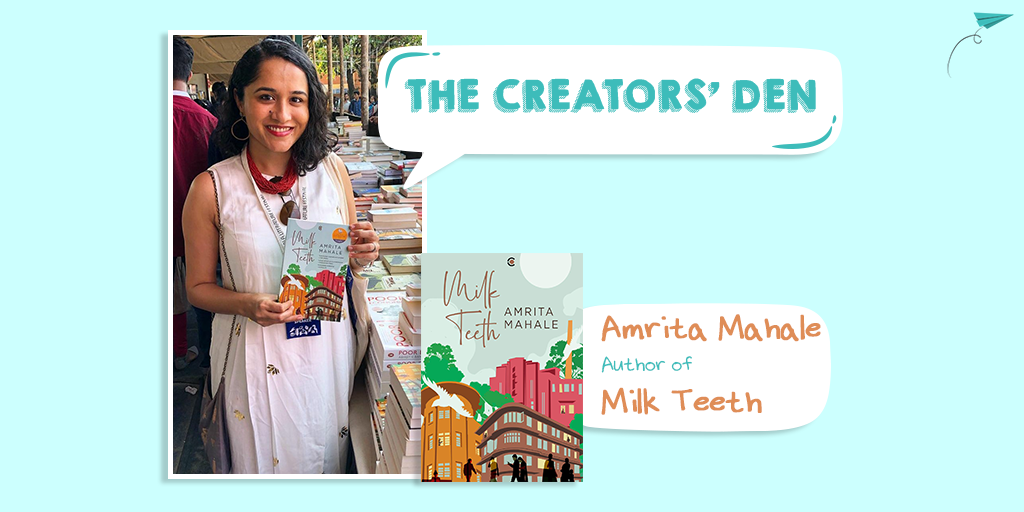Amrita Mahale is the author of the acclaimed novel, Milk Teeth, shortlisted for the Crossword Book Award and longlisted for the JCB Prize for Literature and the Tata LitLive! First Book Award in 2019. She was part of the Sangam writing residency 2017-18 and her writing has appeared in a number of renowned publications such as Hindustan Times, Indian Express, Scroll, Himal Southasian and Brown Paper Bag. She currently works at an applied research lab focused on AI for social good.
Read on to find out how this rocket scientist from IIT and Stanford became a fiction writer.
Tell us about your journey – how did an aerospace engineer find her way into literary fiction?
I have dreamed of writing novels since I was very young. It was always clear to me that no matter what I studied or where I worked, I would work towards being a writer. The path was a zigzag one. After two degrees in aerospace engineering, I pursued a career in strategy & product design in consumer technology companies. Writing literary fiction has little to do with either of those. I started with baby steps, taking a writing class one day a week and working on short stories on weekends. One of those short stories eventually became Milk Teeth. My journey illustrates that there are many paths to becoming a writer, some longer than others, but if you have something to say and are disciplined and persistent, you will get there.
What sparked the thought behind your debut novel, Milk Teeth? What inspired you to write this story?
Milk Teeth took a little over four years to write and edit, but the characters had been living in my head for over a decade as parts of different, shifting stories. The starting point for the novel was the idea of a prophecy that comes true for the most unexpected reasons: a prophecy that these two childhood friends would grow up and get married, even though one is gay and the other is in love with another man. I was thinking a lot at that point about the kinds of social pressures that compel people to make certain decisions. This evolved into the idea that sometimes prophecies are redundant because people live the same lives over and over again, that their lives are scripted by social pressures more than by fate. And slowly that became a look at middle-class society and what happens when its sense of self-worth is thwarted by modern urban life.

The city of Mumbai (or Bombay, as we still like to call it!) plays a vivid role in this book. What has been your personal experience with this city?
I was born in Bombay but spent most of my childhood in Gujarat, till I moved back to the city as a teenager. My entire extended family – grandparents, aunts and uncles and aunts, cousins – was in Bombay / Mumbai, so my summer and winter vacations were spent there. And my own family moved every two years, so the sense of continuity in my childhood came from spending all my vacations in the city. It is the place I have always thought of as home, and also the city I know best. I wrote ‘Milk Teeth’ when I was living in Delhi, but a week after the novel was published, I moved back to Mumbai after eleven years away.
The characters in your story are layered, nuanced and wonderfully real. Were they completely fleshed out right at the outset or did they gradually acquire their personalities along the way?
Writing a good character is a feat of observation and imagination both, and good characters come from a place of deep feeling. There was a rough starting point for what each character’s journey was about, and the rest came along the way. Each of the characters struggles with something that I have also struggled with: Kartik’s self-doubt and professional dissatisfactions, Ira’s anxiety about her lack of cultural capital, Kaiz’s longing to prove that Mumbai is his home. And each of these is linked to the novel’s central theme: finding your place in a changing world while trying to remain true to an idea you have of yourself. The complexity in the characters came slowly, accruing over several drafts.

As a writer, do you ever experience a block or slowdown in your creative energy? If so, how do you tackle it?
It happens all the time. Sometimes, the only way to overcome it is to power through it. Set yourself a word target and don’t step away from your writing spot till you have met your goal. The words you write in the beginning will be terrible, but will help you get into the flow. This approach does not work all the time. Brute force will not help if you haven’t worked out what you want to say, or if you are genuinely beginning to realise that what you are working on has major flaws, or if you are anxious because the world is in the middle of a long, savage pandemic. Sometimes all you can do is be kind to yourself and wait for the creative energy to return.
Follow Amrita on Instagram and Twitter.
Read our review of Milk Teeth.

